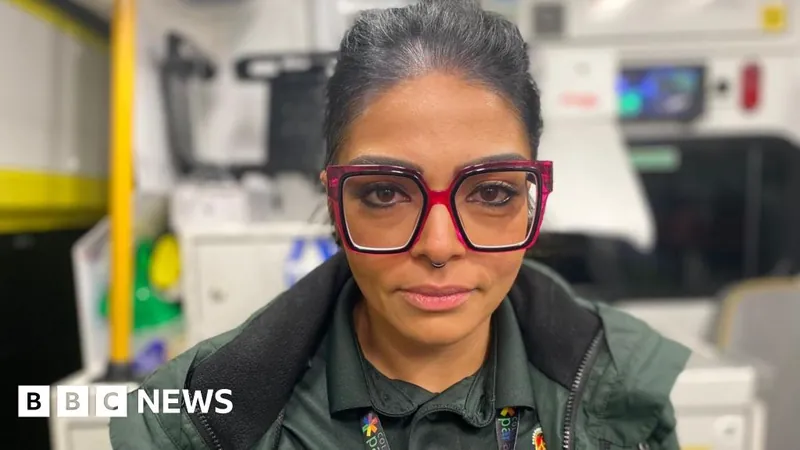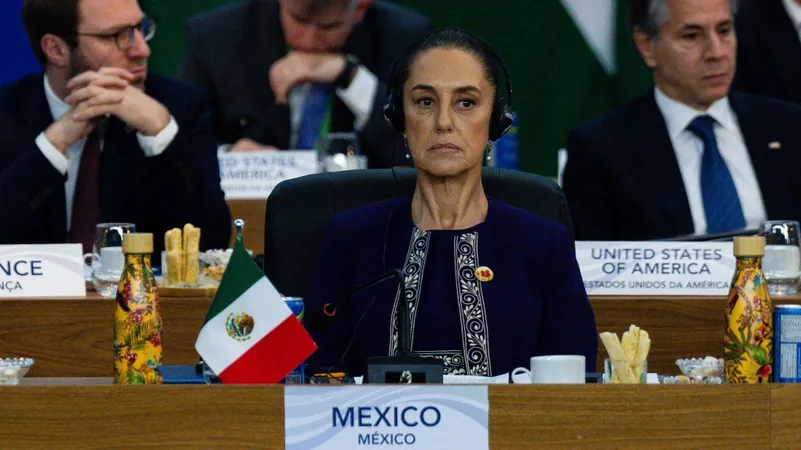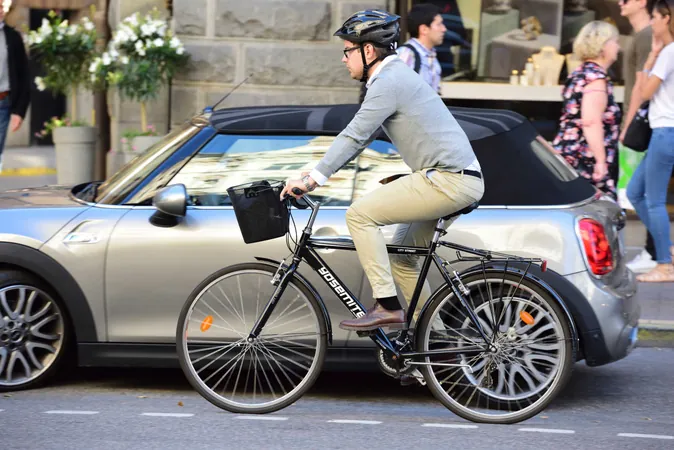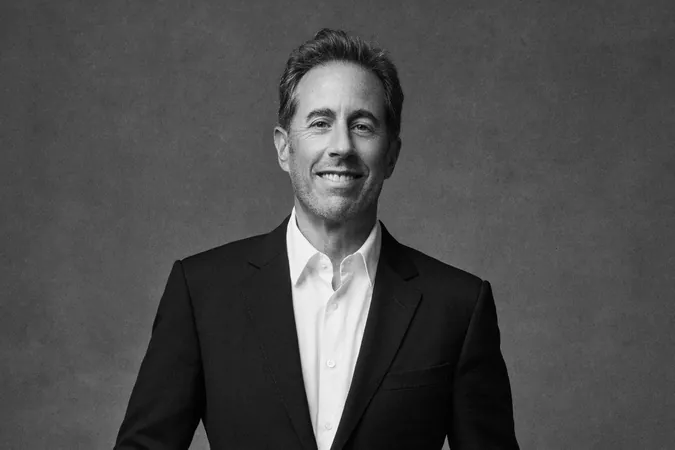
Emergency Workers Under Siege: A Dire Look at Rising Violence Against Paramedics
2024-12-04
Author: Emma
Increasing Violence Against Paramedics
In a disturbing trend, violence and abuse against paramedics and emergency call handlers in England is escalating at an alarming rate. Recent reports highlight a staggering increase of over a third in reported assaults since 2019, according to investigations conducted by the BBC.
Over the past five years, ambulance services across England have recorded nearly 45,000 incidents of assaults against frontline staff, who are often targeted while performing their vital duties. Paramedics have faced a myriad of abuses—from being punched and kicked to threats involving weapons, not to mention experiencing racial, homophobic, and religious slurs.
Personal Accounts of Violence
Nutan Patel-West, a paramedic with over a decade of service at North West Ambulance Service (NWAS), shared her harrowing experiences of violence. "I've been verbally abused, racially insulted, punched, and even had a knife brandished at me," she recounted. One particularly shocking incident saw a patient angrily tell her to "go back to your own country" before dangerously hurling an ashtray at her, missing her by mere inches. "I signed up to this job to help people, not to be subjected to this sort of treatment," she lamented.
The effects of such abuse extend beyond physical harm. Patel-West explained the intense psychological impact, saying that after each incident, her senses heighten and fear creeps in, especially during night shifts when unpredictability looms. The alarming statistics reflect this distressing culture of violence; Freedom of Information Act requests revealed that between 2019 and 2023, 44,926 physical and verbal assaults were logged, averaging 173 assaults each week across the country.
Underreporting of Incidents
Many paramedics, however, believe that the true number of incidents is likely higher due to underreporting. “If I reported every single incident, I'd never leave my desk,” Patel-West remarked, emphasizing that there simply isn’t enough time to document every case.
The Toll on Emergency Call Handlers
Emergency call handlers are not spared from this crisis either. James Shelley, another NWAS employee based in Manchester, described an unsettling 11-minute call filled with homophobic abuse he received earlier this year. The caller, having been displeased with the service, unleashed a torrent of vitriol, leaving Shelley visibly shaken. After the incident, the caller was prosecuted, receiving a suspended prison sentence and community service for his actions.
Calls for Public Cooperation
To combat this rising violence, Natalie Samuels, NWAS's violence prevention and reduction manager, is calling for public cooperation. “We understand the stressful nature of needing an ambulance, but we ask for calmness and respect as our call handlers work to ensure the best possible care," she said.
Highlighting Positive Interactions
Reflecting on the matter, paramedic Lisa Morley emphasized that while the frequency of abuse is troubling, it is crucial to remember that not every interaction is hostile. “We focus on the positive experiences and the lives we're saving, even amidst the chaos," she stated.
Conclusion: The Need for Cultural Change
The growing trend of violence against emergency service workers highlights an urgent social issue. As communities come to understand the vital role paramedics play, there is a pressing need for a cultural shift that respects and protects those who bravely put their lives on the line to save others. Emergency workers call for solidarity and support from the public to foster an environment where they can carry out their essential duties without fear or intimidation.









 Brasil (PT)
Brasil (PT)
 Canada (EN)
Canada (EN)
 Chile (ES)
Chile (ES)
 España (ES)
España (ES)
 France (FR)
France (FR)
 Hong Kong (EN)
Hong Kong (EN)
 Italia (IT)
Italia (IT)
 日本 (JA)
日本 (JA)
 Magyarország (HU)
Magyarország (HU)
 Norge (NO)
Norge (NO)
 Polska (PL)
Polska (PL)
 Schweiz (DE)
Schweiz (DE)
 Singapore (EN)
Singapore (EN)
 Sverige (SV)
Sverige (SV)
 Suomi (FI)
Suomi (FI)
 Türkiye (TR)
Türkiye (TR)